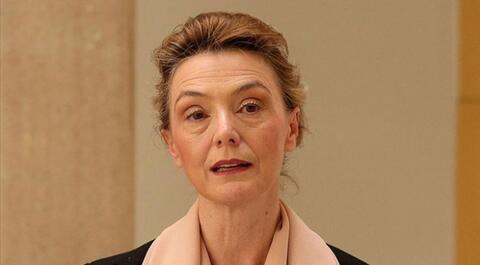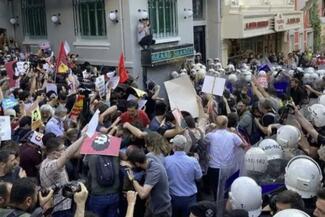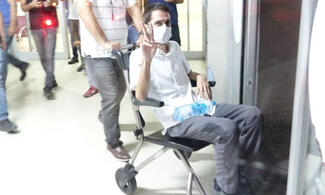
Secretary General of the Council of Europe (CoE) Marija Pejčinović Burić has stated that the judgements of the European Court of Human Rights (ECtHR) are not "requests," but "binding legal requirements."
Addressing a hybrid session of the Parliamentary Assembly, Burić has underlined the importance of two key conventions for the CoE: European Convention on Human Rights (ECtHR) and the European Social Charter.
Describing these two conventions as comprising the "soul of modern Europe", she has noted that compliance by member states with rulings of the ECtHR is not a "kind request", but a "binding legal requirement".
Referring to the case of arrested businessperson and rights defender Osman Kavala in Turkey, Burić has indicated it is "utterly wrong" that the authorities in the country have still not released Kavala, despite the Court having called for his release in a final judgement last year.
ECtHR judgement given in 2019
Businessperson Osman Kavala was taken into custody on October 18, 2017 and arrested on November 1, 2017.
Announcing its ruling on Kavala on December 10, 2019, the ECtHR, with six votes against one, concluded that his rights were violated.
The ECtHR concluded that the European Convention on Human Rights was violated on the grounds that Kavala was arrested without any reasonable suspicion and with political motives and that the Constitutional Court did not examine his application within a reasonable period of time.
The ECtHR concluded that the Articles 5/1, 5/4 and 18 of the European Convention on Human Rights (ECHR) were violated by his imprisonment and ruled that Osman Kavala should be released immediately.
Uçum says 'not binding'
Presidential Law Policies Committee Deputy Chair and Chief Advisor to the President Mehmet Uçum previously said in an interview to the pro-government Sabah newspaper that the rulings of the European Court of Human Rights (ECtHR) are not binding in consideration of merits. According to Uçum, the rulings of Turkey's Constitutional Court and the ECtHR are "not hierarchical, but guiding inspections."
He argued that "the judgements given by these two courts are binding for rehearing the cases", adding that "courts are obliged to hear these cases again and, when they do, they can give a new judgement or not."
Referring to the Codes of Penal and Civil Procedure of Turkey, Mehmet Uçum further asked, "While it is so obvious that the ECtHR judgements are not binding as to the merits and the authority lies with independent courts, how can they argue that they are binding?"
As Uçum said similar things in another interview shortly afterwards, imprisoned politician Selahattin Demirtaş, who is also still behind bars despite the judgements of the ECtHR and ECtHR Grand Chamber for his immediate release, mocked these statements in a message.
Referring to the Human Rights School Working Papers No. 24 of his attorneys Prof. Başak Çalı and Dr. Kerem Altıparmak, Demirtaş referred to Hamza Yerlikaya, a former national wrestler who is currently a senior advisor to the President, a vice minister and the vice-chair of the state-run Vakıfbank, but the fakeness of whose high school diploma was confirmed by a local court verdict. "Hamza Yerlikaya might just as well be appointed as a legal advisor. When you look at it, their knowledge of law is almost on the same level," said Demirtaş about the comment of Uçum.


